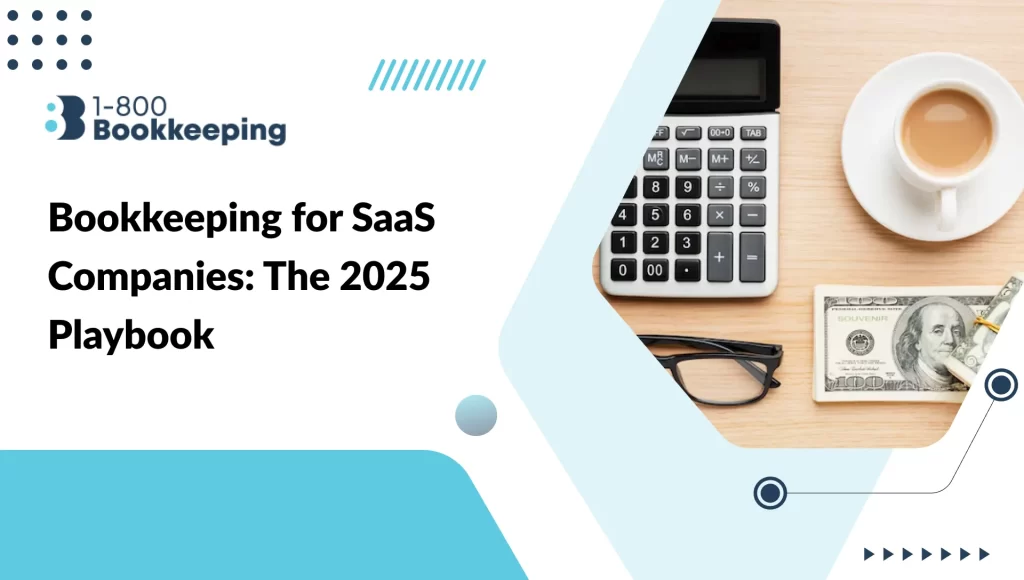In the landscape of modern business management, an effective expense reimbursement policy is essential. Such policies not only streamline reimbursing employees for business-related expenses but also foster transparency and accountability. By ensuring that employees are fairly compensated for out-of-pocket expenditures and that company resources are used wisely, businesses can avoid financial discrepancies and enhance employee satisfaction. A clear and structured expense reimbursement policy can thus act as a cornerstone for maintaining robust economic health and nurturing a trustworthy workplace culture. Implementing an effective policy involves understanding the diverse nature of business expenses, setting clear guidelines, and ensuring compliance.
Defining Eligible Expenses
A critical component of an effective expense reimbursement policy is the precise definition of eligible expenses. Eligible expenses typically fall into several common categories: travel, meals, office supplies, and client entertainment. For example:
- Travel Expenses are costs associated with business trips, such as airfare, accommodation, rental cars, and public transportation. This category ensures employees can travel comfortably and efficiently to fulfill their duties.
- Meals and Entertainment: Expenses for meals and entertainment when meeting with clients or team-building activities. This covers the cost of meals and supports the creation of solid business relationships.
- Office Supplies are purchases necessary for daily business operations, including stationery and software subscriptions. These expenses are crucial for maintaining productivity and efficiency in the workplace.
- Client Entertainment: Expenses incurred while entertaining clients to foster business relationships. This can include costs related to hosting events, dinners, or outings to strengthen client bonds.
Aligning these expense categories with business objectives is paramount. Clearly defining what qualifies as an eligible expense helps eliminate ambiguity, ensures employees understand what can be reimbursed, and aids in maintaining financial discipline. Such clarity is crucial for avoiding misunderstandings and ensuring the reimbursement process runs smoothly.
Partnering with 1-800 Bookkeeping for an Effective Expense Reimbursement Policy
Managing an effective expense reimbursement policy can be complex, but 1-800 Bookkeeping offers a range of services to simplify the process:
- Bookkeeping Services: Accurate and timely bookkeeping to keep track of all expense-related transactions. Our bookkeeping services ensure that all expenses are recorded correctly and promptly.
- Expense Tracking: Advanced tools to monitor and manage employee expenses seamlessly. Our tools help streamline the tracking and management of costs, making the process more efficient.
- Advisory Services: Expert advice on developing comprehensive expense reimbursement policies. Our advisory services can help you create and implement effective policies tailored to your business needs.
Many businesses have benefited from 1-800 Bookkeeping services. For example, a small startup struggling with inconsistent expense submissions found that implementing 1-800 Bookkeeping’s solutions reduced errors and improved compliance, leading to smoother operations and happier employees. By partnering with 1-800 Bookkeeping, businesses can ensure their expense reimbursement policies are robust, transparent, and aligned with best practices, ultimately driving better financial health and operational efficiency. Contact us today for a complimentary consultation.
Benefits of Implementing an Effective Expense Reimbursement Policy
Financial Transparency and Accountability
- Ensures all business-related expenses are documented and justified.
- It helps prevent fraud and misuse of company funds.
Enhanced Employee Satisfaction
- Provides clear guidelines on reimbursable expenses.
- Reduces uncertainty and disputes related to reimbursements.
Streamlined Administrative Processes
- Saves time for both employees and finance departments.
- Minimizes administrative burdens through efficient processes.
Cultivation of Trust and Reliability
- Maintains consistent and fair reimbursement practices.
- Improves employee morale and productivity by fostering a trustworthy work environment.
Regular Reviews and Updates
- Ensures the policy remains relevant and aligned with organizational goals and economic conditions.
- Supports long-term financial stability and operational efficiency.
Setting Clear Guidelines and Limits
Setting clear guidelines and limits is fundamental to an effective expense reimbursement policy. Establishing rules for maximum reimbursement amounts and the necessary documentation to submit for each type of expense can prevent excessive spending and ensure consistency. Here are some typical considerations:
- Maximum Reimbursement Amounts: Provide a clear cap for different categories, such as daily limits for meals or maximum allowable costs for hotel accommodations. This helps control costs and prevents overspending.
- Required Documentation: Specify the type of receipts or proof required. For instance, an itemized restaurant bill is often necessary to claim meal expenses. Documentation ensures transparency and accountability.
For example, a company might set a policy that meal expenses are capped at $50 per day, with employees required to submit detailed receipts for each meal. These limits should be balanced to reflect fiscal responsibility and employees’ practical needs, thereby avoiding dissatisfaction or financial misuse. Clear guidelines help create a fair and predictable process for expense reimbursement.
Implementing a Streamlined Submission Process
A streamlined expense submission process is crucial for efficiency and employee satisfaction. The process should be straightforward to minimize administrative burden and reduce delays. Key steps include:
- Utilizing Tools and Software: Use expense management software like Expensify, Concur, or Zoho Expense to submit, track, and approve expense reports quickly. These tools can automate many aspects of the process, making it more efficient.
- Setting Deadlines and Approval Workflows: Define clear deadlines for when expense reports must be submitted and establish workflows for timely review and approval by managers. Timely submissions and approvals ensure quick reimbursement and up-to-date financial records.
For instance, an employee may need to submit expenses within 30 days of incurring them, with the manager having an additional seven days to approve. A streamlined process helps in quick reimbursement and keeps financial records up-to-date. By reducing administrative bottlenecks, businesses can enhance the overall efficiency of the reimbursement process.
Ensuring Compliance and Accountability
Ensuring compliance with reimbursement policies and maintaining accountability are essential to preventing fraud and misuse of company funds. Effective strategies include:
- Policy Enforcement: Ensure consistent enforcement of the policies. Employees should adhere to the guidelines without exceptions unless pre-approved. Consistent enforcement helps maintain fairness and integrity.
- Role of Managers and Supervisors: Managers play a crucial role in monitoring compliance and are typically the first line of review before expenses are forwarded to the finance team. Their involvement is critical for ensuring adherence to policies.
- Auditing and Reviewing: Regular audits and reviews of submitted expenses help detect discrepancies and maintain accurate financial records. Audits can identify patterns of misuse and prompt corrective actions.
For example, periodic audits of expense reports could reveal patterns indicating misuse, prompting corrective action and policy reinforcement. Regular audits ensure compliance and help maintain the organization’s financial health.
Communicating the Policy to Employees
Effective communication of expense policies ensures that employees are well-informed and understand the procedures and limits involved. Strategies for effective communication include:
- Training Sessions: Conduct training sessions to ensure employees know the policy specifics and submission processes. Training can help clarify doubts and ensure everyone is on the same page.
- Easy-to-Access Resources: Maintain an accessible repository of policy documents and FAQs. Easy access to resources ensures employees can refer to the policy whenever needed.
- Regular Updates and Reminders: Periodically remind employees of the policy’s key aspects and any updates. Regular communication helps keep the policy top-of-mind.
For instance, a quarterly email reminder about the policy, including any updates or common pitfalls to avoid, can keep the policy top-of-mind for employees. Effective communication ensures that employees understand and comply with the policy, reducing the chances of errors and disputes.
Handling Disputes and Exceptions
Handling reimbursement disputes and exceptions fairly and transparently is critical for maintaining trust and morale. Common types of disputes include disagreements on eligibility or the amount reimbursed. Effective handling involves:
- Clear Procedures: Establish clear procedures for employees to raise and resolve disputes. This may involve an initial discussion with the direct manager and escalation to HR or finance. Clear procedures help in resolving disputes amicably and efficiently.
- Role of HR and Finance Teams: HR and finance teams should investigate and resolve disputes to ensure fairness and consistency. Their involvement ensures that all aspects of the dispute are considered.
For example, suppose an employee disputes a rejected expense. In that case, the policy might outline a three-step appeal process involving the immediate supervisor, a finance review, and a final review by HR. A transparent and fair dispute resolution process helps maintain trust and employee satisfaction.
Regularly Reviewing and Updating the Policy
Regularly reviewing and updating expense policies ensures they remain relevant and practical. Businesses should:
- Conduct Regular Reviews: Schedule annual or bi-annual policy reviews to reflect business operations or economic conditions changes. Regular reviews help keep the policy current and effective.
- Solicit Employee Feedback: Engage with employees to gather feedback on the policy’s effectiveness and any areas for improvement. Employee feedback can provide valuable insights for enhancing the policy.
- Adapt to Changes: Ensure the policy evolves to accommodate new expenses or technological advancements. Adapting to changes ensures that the policy remains relevant.
For instance, a review might highlight the need to include remote work-related expenses, leading to an update in the policy to cover home office equipment or internet costs. Regular updates ensure the policy evolves with the business’s and its employees’ changing needs.
Conclusion
An effective expense reimbursement policy offers numerous advantages, including better financial management, compliance, and enhanced employee satisfaction. Businesses can maintain transparency and efficiency in their reimbursement practices by taking proactive steps to manage business expenses through clear guidelines, streamlined processes, and regular updates. A well-implemented policy safeguards company finances and supports a culture of accountability and trust. The benefits of such a policy extend to both the organization and its employees, promoting a healthy and productive workplace.
Don’t let Bookkeeping Overwhelm You. Let us Help.
Running a business is demanding, and keeping track of your finances can be a never-ending chore. Many business owners need help with the complexities of bookkeeping, which can leave them frustrated and behind.
1-800 Bookkeeping offers expert services to streamline your financial processes and empower you to make informed decisions.
Our team of seasoned professionals understands the unique challenges businesses of all sizes face. We can help you:
- Free Up Valuable Time: Offload your bookkeeping tasks to our dedicated professionals.
- Gain Peace of Mind: Ensure your financial records are accurate and up-to-date.
- Make Smarter Decisions: Get actionable insights into your business performance through clear and concise reports.
- Feel Confident: Make informed financial decisions based on reliable data.
Don’t let bookkeeping hold you back from achieving your business goals. Contact 1-800 Bookkeeping today for affordable bookkeeping solutions.
FAQs:
1. What are the critical components of an effective expense reimbursement policy?
An effective expense reimbursement policy includes defining eligible expenses, setting clear guidelines and limits, implementing a streamlined submission process, ensuring compliance and accountability, and regularly reviewing and updating the policy.
2. Why is defining eligible expenses in a reimbursement policy important?
Defining eligible expenses helps eliminate ambiguity, ensures employees understand what can be reimbursed, and aids in maintaining financial discipline. It aligns expense categories with business objectives and supports transparency.
3. How can businesses ensure compliance with expense reimbursement policies?
Compliance can be ensured through consistent policy enforcement, regular audits and reviews, and managers’ involvement in monitoring and approving expenses. Clear communication and training also play a crucial role.
4. What strategies can help in communicating expense policies effectively to employees?
Conducting training sessions, maintaining accessible resources, and providing regular updates and reminders can help communicate expense policies effectively. Clear communication ensures employees understand and follow the guidelines.
5. How often should expense reimbursement policies be reviewed and updated?
Expense reimbursement policies should be reviewed and updated regularly, typically annually or bi-annually, to reflect changes in business operations, economic conditions, and employee needs. Soliciting employee feedback can also provide insights for improvements.





